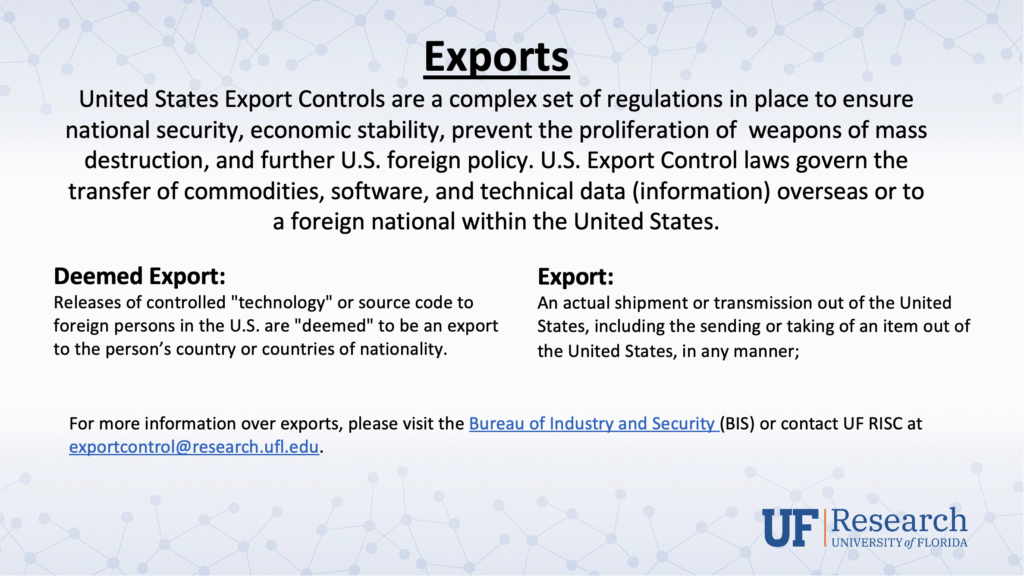Export Controls Menu
Need a Technology Control Plan?
Complete the Technology Control Plan Setup Questionnaire to get started.
How Can We Help?
Call UF Research Integrity, Security and Compliance at 352-392-9174 or email us at exportcontrol@research.ufl.edu.


